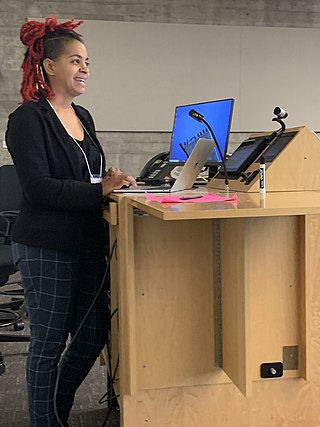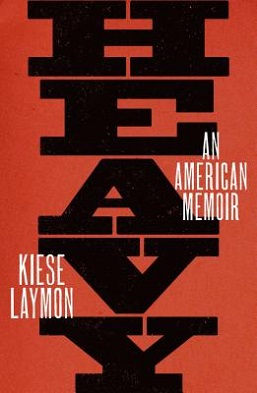
Walker Percy, OblSB was an American writer whose interests included philosophy and semiotics. Percy is noted for his philosophical novels set in and around New Orleans; his first, The Moviegoer, won the National Book Award for Fiction.

Richard Ford is an American novelist and short story author, and writer of a series of novels featuring the character Frank Bascombe.

Greil Marcus is an American author, music journalist and cultural critic. He is notable for producing scholarly and literary essays that place rock music in a broader framework of culture and politics.

Anthony Dey Hoagland was an American poet. His poetry collection, What Narcissism Means to Me (2003), was a finalist for the National Book Critics Circle Award. His other honors included two grants from the National Endowment for the Arts, a 2000 Guggenheim Fellowship in Poetry, and a fellowship to the Provincetown Fine Arts Work Center. His poems and criticism have appeared in such publications as Poetry Magazine, Ploughshares, AGNI, Threepenny Review, The Gettysburg Review, Ninth Letter, Southern Indiana Review, American Poetry Review and Harvard Review.
Elizabeth Searle is an American novelist, short story writer, playwright and screenwriter. She is the author of five books of fiction and a rock opera, and she is co-writer of "I'll Show You Mine," a feature film from Duplass Brothers Productions and that was released by Gravitas Ventures in 2023 in select theaters in NYC, LA and more and widely via VOD on AmazonPrime, AppleTV, Comcast OnDemand, Vudu and more. The film which Elizabeth co-wrote with David Shields and Tiffany Louquet, is directed by Megan Griffiths and stars Poorna Jagannathan and Casey Thomas Brown. It received positive reviews in the New York Times and more, as well as national media coverage in VARIETY and more. Elizabeth has several other film projects in development. Her theater work TONYA & NANCY: THE ROCK OPERA has been performed around the country. Both I'LL SHOW YOU MINE and TONYA & NANCY: THE ROCK OPERA have received national media attention.
Robert Lacy is an American writer whose short stories and essays have been published in a large number of publications including The Best American Short Stories, Ploughshares, The Oxford American, Virginia Quarterly Review and The Gettysburg Review. He has also published several books of fiction and essays.
Robert Anthony Siegel is an American writer and professor. He is the author of two novels and numerous short stories and essays, and has been recognized with O. Henry and Pushcart Prizes among other awards. He is currently an instructor at the University of North Carolina Wilmington's Creative Writing Department.

Wesley McNair is an American poet, writer, editor, and professor. He has authored eleven volumes of poetry, most recently, Late Wonders: New & Selected Poems and Dwellers in the House of the Lord. He has also written three books of prose, including a memoir, The Words I Chose: A Memoir of Family and Poetry. In addition, he has edited several anthologies of Maine writing, and served as a guest editor in poetry for the 2010 Pushcart Prize Annual.

Jesmyn Ward is an American novelist and a professor of English at Tulane University, where she holds the Andrew W. Mellon Professorship in the Humanities. She won the 2011 National Book Award for Fiction for her second novel Salvage the Bones, a story about familial love and community in facing Hurricane Katrina. She won the 2017 National Book Award for Fiction for her novel Sing, Unburied, Sing.

Kiese Laymon is an American writer. He is a professor of English and Creative Writing at Rice University. He is the author of three full-length books: a novel, Long Division (2013), and two memoirs, How to Slowly Kill Yourself and Others in America (2013) and the award-winning Heavy: An American Memoir (2018). Laymon was awarded a MacArthur Fellowship in 2022.
Agate Publishing is an independent small press book publisher based in Evanston, Illinois. The company, incorporated in 2002 with its first book published in 2003, was founded by current president Doug Seibold. At its inception, Agate was synonymous with its Bolden imprint, which published exclusively African-American literature, an interest of Seibold's and a product of his time working as executive editor for the defunct African-American publisher Noble Press.

The Fire This Time: A New Generation Speaks About Race is an essay and poetry collection edited by the American author Jesmyn Ward and published by Scribner in 2016. The title, The Fire This Time, alludes to James Baldwin's seminal 1963 text, The Fire Next Time.

Yrsa Daley-Ward is an English writer, model and actor. She is known for her debut book, Bone, as well as for her spoken-word poetry, and for being an "Instagram poet". Her memoir, The Terrible, was published in 2018, and in 2019 it won the PEN/Ackerley Prize. She co-wrote Black Is King, Beyoncé's musical film and visual album, which also serves as a visual companion to the 2019 album The Lion King: The Gift.

Aisha Sabatini Sloan is an American writer who was born and raised in Los Angeles. Her writing about race and current events is often coupled with analysis of art, film, and pop culture. She studied English literature at Carleton College and went on to earn an MA in Cultural Studies and Studio Art from the Gallatin School of Individualized Study at NYU and an MFA in Creative Nonfiction from the University of Arizona. Her essay collection, The Fluency of Light: Coming of Age in a Theater of Black and White was published by the University of Iowa Press in 2013. Her essay collection, Dreaming of Ramadi in Detroit, was published in 2017 and chosen by Maggie Nelson as the winner of the 1913 Open Prose Contest. Her 2021 essay, Borealis, received the 2022 Lambda Literary Award for Bisexual Nonfiction.

Jaquira Díaz is a Puerto Rican fiction writer, essayist, journalist, cultural critic, and professor. She is the author of Ordinary Girls, which received a Whiting Award in Nonfiction, a Florida Book Awards Gold Medal, was a Lambda Literary Award Finalist, and a Barnes & Noble Discover Prize Finalist. She has written for The Atlantic, Time (magazine), The Best American Essays, Tin House, The Sun, The Fader, Rolling Stone, The Guardian, Longreads, and other places. She was an editor at theKenyon Reviewand a visiting professor at the University of Wisconsin–Madison.In 2022, she held the Mina Hohenberg Darden Chair in Creative Writing at Old Dominion University's MFA program and a Pabst Endowed Chair for Master Writers at the Atlantic Center for the Arts. She has taught creative writing at Colorado State University's MFA program, Randolph College's low-residency MFA program, the University of Wisconsin-Madison, and Kenyon College. Díaz lives in New York with her spouse, British writer Lars Horn, and is an Assistant Professor of Writing at Columbia University.

Arthur Jafa is an American video artist and cinematographer.

Heavy: An American Memoir is a memoir by Kiese Laymon, published October 16, 2018 by Scribner. In 2019, the book won the Carnegie Medal for Nonfiction and Los Angeles Times Book Prize, among other awards and nominations.

Hubert Horton McAlexander is a scholar of Southern literature and culture and a Josiah Meigs Professor Emeritus in the University of Georgia’s department of English. In addition to numerous articles on William Faulkner and other nineteenth- and twentieth-century Southern authors, he wrote biographies of Sherwood Bonner and Peter Taylor and edited a collection of critical essays on Taylor and a volume of interviews with Taylor. He has also published books and articles on regional history, especially the region of northern Mississippi that inspired William Faulkner’s fiction.
Jerald Walker is an American writer and professor of creative writing and African American literature at Emerson College.

Minda Honey is an American author and columnist, she is best known for her debut memoir, The Heartbreak Years.
















